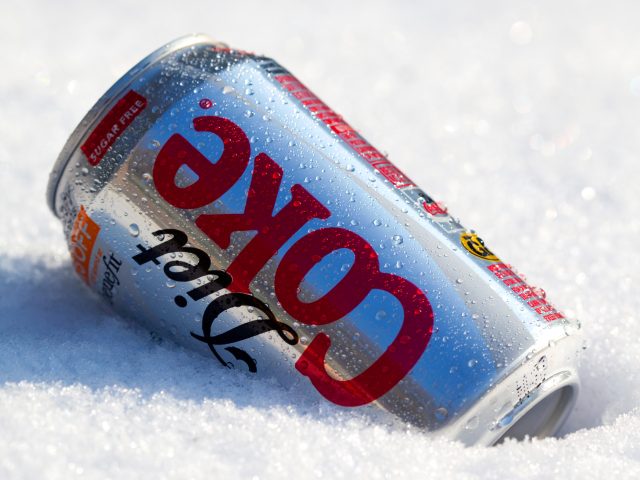This website uses cookies so that we can provide you with the best user experience possible. Cookie information is stored in your browser and performs functions such as recognising you when you return to our website and helping our team to understand which sections of the website you find most interesting and useful.
Report to disclose aspartame in Diet Coke ‘possibly’ causes cancer
A sweetener, used in drinks like Diet Coke, is soon set to be listed by the World Health Organisation (WHO) as “possibly” linked to cancer.

The new report findings, which are due to be published next month by the WHO’s International Agency for Research on Cancer (IARC), highlight how aspartame will be identified as “possibly carcinogenic to humans” according to Reuters.
The information from the reports stated that the decision was reached by a group of external experts whose primary role involves assessing whether products present a potential hazard based on all the published evidence.
However, despite the revelation, the IARC has been criticised for its decisions causing needless panic and alarm without context or further clarity. Especially after reports have also historically seen the IARC listing activities such as working overnight and eating red meat as “probable” cancer-causing along with using mobile phones as also being a potential threat.
According to industry sources, the leaked opinion from the IARC violates WHO’s embargo, which was set to be revealed on 14 July, and was due to also include the simultaneous release of a broader, comprehensive food safety review conducted by the WHO and FAO Joint Expert Committee on Food Additives (JECFA).
Additionally, the IARC’s website clearly details the embargo and answers FAQs, including explaining how the IARC review is just one component of WHO’s broader review of whether aspartame is safe in food and beverages.
One item to note is that the report findings do not take into account how much aspartame a person can safely consume according to JECFA. After all, reports state that since 1981 JECFA has outlined that aspartame is still considered as safe to consume within accepted daily limits. According to these reports, this means that an adult weighing approximately nine stone would have to drink between 12 and 36 330ml cans of diet soft drinks every day to be at risk.
Speaking about the new report, the International Sweeteners Association (ISA) secretary-general Frances Hunt-Wood told the drinks business that she had “serious concerns with the IARC review, which may mislead consumers” and highlighted how the “IARC is not a food safety body and their review of aspartame is not scientifically comprehensive and is based heavily on widely discredited research”.
According to an official from Japan’s ministry of health Nozomi Tomita, who wrote a letter to WHO’s deputy director-general Zsuzsanna Jakab, both the industry and regulators need to work together to avoid confusing the public.
Tomita implored: “We kindly ask both bodies to coordinate their efforts in reviewing aspartame to avoid any confusion or concerns among the public.”
Aspartame, which has been studied at length for years, is currently still authorised for use globally and has been reviewed by many food and drinks companies who have long defended using the sweetener.
Diffusing the uproar, Dr. John Sievenpiper, associate professor in the Department of Medicine at University of Toronto, insisted: “Aspartame has proven to be a safe tool to reduce calories and sugars in the diet and is one of the most extensively studied ingredients with over 40 years of high-quality science supporting its safety. The best available evidence from large population studies shows that low and no-calorie sweeteners as a replacement strategy for added sugars is associated with reductions in important public health outcomes such as obesity, cardiovascular disease and death.”
Coca-Cola has been contacted for comment, but so far the soft drinks giant has stayed silent on the new report findings and instead only offered information from health sources rather than responding to the documentation directly.

